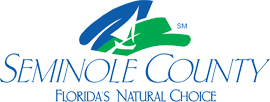SEMINOLE COUNTY BURN BAN EFFECTIVE IMMEDIATELY. LEARN MORE.
Community Development Programs
Community Development continues its efforts to improve the living conditions of County residents through infrastructure improvements, public services, housing activities, homeless services, and economic development.
Seminole County receives Federal and State grant funding through a number of programs funded by the U.S. Department of Housing and Urban Development (HUD) and the Florida Housing Finance Corporation (FHFC).
The following programs are available:
-
State Housing Initiatives Partnership (SHIP) Program
-
Affordable Housing Advisory Committee
-
-
Community Development Block Grant (CDBG) Program
-
Emergency Solutions (ESG) Program
-
Home Investment Partnerships (HOME) Program
State Housing Initiatives Partnership Program
Florida Housing administers the State Housing Initiatives Partnership program (SHIP), which provides funds to local governments as an incentive to create partnerships that produce and preserve affordable homeownership and multifamily housing. The program was designed to serve very low, low, and moderate-income families.
SHIP funds are distributed on an entitlement basis to all 67 counties and 52 Community Development Block Grant entitlement cities in Florida. The minimum allocation is $350,000. In order to participate, local governments must establish a local housing assistance program by ordinance; develop a local housing assistance plan and housing incentive strategy; amend land development regulations or establish local policies to implement the incentive strategies; form partnerships and combine resources in order to reduce housing costs, and ensure that rent or mortgage payments within the targeted areas do not exceed 30 percent of the area median income limits, unless authorized by the mortgage lender.
SHIP dollars may be used to fund emergency repairs, new construction, rehabilitation, down payment and closing cost assistance, impact fees, construction and gap financing, mortgage buy-downs, acquisition of property for affordable housing, matching dollars for federal housing grants and programs, and homeownership counseling. SHIP funds may be used to assist units that meet the standards of chapter 553.
A minimum of 65 percent of the funds must be spent on eligible homeownership activities; a minimum of 75 percent of funds must be spent on eligible construction activities; at least 30 percent of the funds must be reserved for very-low income households (up to 50 percent of the area median income or AMI); an additional 30 percent must be reserved for low-income households (up to 80 percent of AMI), and the remaining funds may be reserved for households up to 140 percent of AMI. No more than 10 percent of SHIP funds may be used for administrative expenses. Funding for this program was established by the passage of the 1992 William E. Sadowski Affordable Housing Act. Funds are allocated to local governments on a population-based formula.
Community Development Division use the income level provide by Florida Housing Finance Corporation (FHFC) for the different programs listed below:

Minor Home Repair Program
The Minor Home Repair Program is designed to provide assistance in the form of a grant to eligible low-income homeowners in Seminole County, who would not otherwise be able to make necessary repairs to correct safety concerns and improve the immediate livability of their homes. In order to be eligible for the program, the homeowner must be residing in the home as their primary residence and have a total household income at or below 80% of the Area Median Income (AMI). The six trades in which assistance can be provided are roofing, electrical, plumbing, HVAC (heating and cooling systems), repairs to improve accessibility for household members & weatherization.
The County will be accepting pre-applications for the Minor Home Repair Program for residents of Seminole County beginning March 3rd, at 9am. Pre-applications will be made available online only, through the link below. Applicants can visit the Community Services One-Stop-Shop to receive assistance with the online application Monday – Friday, 8am – 5pm at: 520 W Lake Mary Blvd, Suite 100, Sanford, FL 32771.
Only sixty (60) Pre-Applications completed and submitted through the online portal will be accepted and placed on the waiting list based on time/date stamp from housing office. The waiting list for the Minor Home Repair Program will close after 60 pre-applications are received through the online portal. In order to be eligible for the program, the homeowner must be residing in the home as their primary residence and have a total household income at or below 80% of the Area Median Income (AMI). For questions please contact us at (407) 665-2300.
The link to apply for the Pre- Application will be available on March 3rd at 9:00 am
Please click here: https://portal.neighborlysoftware.com/SeminoleCountyFL/Participant
Please read below the instructions on how to apply through the portal:
- Select "Register" and complete the steps to register:
- You will need to have a valid email address (if you do not have a Neighborly account)
- You will get an email to verify account with a code. (Enter verification code).
- Once email verified go ahead and log in to neighborly to complete the pre-application
- You will be required to upload a valid Photo ID for all adults and birth certificates for all minor children listed on the pre-application
Minor Home Repair Program Flyer
Rehabilitation/Reconstruction Program
The Homeowner Rehabilitation Program is intended to meet the housing rehabilitation needs of income-eligible households and to preserve affordable housing in Seminole County. The program provides funding in the form of an interest-free, deferred payment loan to qualified homeowners who need more extensive repairs than what can be provided under the Minor Home Repair Program. Eligible repairs are completed by County approved licensed building contractors, and are restricted to repairs necessary to improve the health, safety, and well-being of the household or contribute to the structural integrity and preservation of the home. In cases where the structure has deteriorated to a point of being unsafe and no longer habitable, and rehabilitation would not bring the dwelling to property standards, the existing home may be demolished and a new home constructed under this program.
The Rehabilitation & Reconstruction Program is now closed.
Purchase Assistance Program
The Purchase Assistance Program provides down payment assistance to income-eligible first-time homebuyers of up to $145,000 depending on income level and needs to help cover the costs to purchase a newly-constructed or existing home in Seminole County. Applicants must meet the minimum criteria of having a total combined household income at or below 120% of the area median income level; must be a first-time homebuyer, by definition has not owned a home or had an interest in a home during the three-year period immediately prior to applying for Purchase Assistance; and pre-approved for a first mortgage through a private lender approved by Seminole County.
The Department has partnered with HELP CDC, a HUD certified housing counselor, to assist households get purchase ready and provide educational resources.
Applications will be made available through HELP CDC.
For more information on how to apply, please contact HELP CDC at 407-628-4832.
Purchase Assistance Program Flyer
Affordable Housing Advisory Committee
Affordable Housing Advisory Committee is charged with reviewing the policies, procedures, and guidelines for the Seminole County Action Plan. Visit the link to know how the committee works: Affordable Housing Advisory Committee | Seminole County (seminolecountyfl.gov).
The Community Development Block Grant (CDBG) is an entitlement grant provided by HUD. The grant is distributed directly to certain communities based on population, poverty level, age of housing stock, and other information provided by the United States Census. The primary purpose of the CDBG program is to provide services that principally benefit low-income citizens and to develop viable urban communities. The CDBG Program's National Objectives are:
- To benefit low and moderate-income persons
- To address slum/blight influences
- To meet a recent urgent community need
The overall goal of the County's program is to stabilize and revitalize low-income neighborhoods through capital improvement, housing rehabilitation, and public service activities. Citizen participation is encouraged through public hearings and neighborhood meetings whereby current activities are discussed and new proposals and project suggestions are considered for the annual CDBG one-year action plan.

Emergency Solutions Grants (ESG)
The ESG program is authorized under the Program Hearth Act of 2011. HUD makes annual grants to the County to house homeless individuals and families, and to prevent homelessness.
Home Investment Partnerships (HOME) Program
The HOME Program is an entitlement grant provided by the HUD. HOME provides funding to Seminole County to implement local housing strategies designed to increase affordable housing opportunities & availability for lower-income households.  Through this program, Seminole County is able to expand the supply of affordable housing, particularly rental housing. The statutory goal of the HOME Program is the preservation, expansion, and long-term affordability of housing stock. Seminole County's HOME Program is designed to fulfill its statutory intent.
Through this program, Seminole County is able to expand the supply of affordable housing, particularly rental housing. The statutory goal of the HOME Program is the preservation, expansion, and long-term affordability of housing stock. Seminole County's HOME Program is designed to fulfill its statutory intent.
Community Housing Development Organization's (CHDO) Role
A CHDO is a non-profit organization specifically designed for the HOME Program. A minimum of 15% of the total HOME allocation is reserved for CHDOs. Once funding is awarded, the CHDO will enter into legal agreements with Seminole County specifying HOME rental housing activities to be carried out and requirements such as the number of years that the project must remain affordable, management control, financial and record-keeping. CHDO projects are awarded funding on a competitive basis. Public/Private Partnership is encouraged through the use of CHDOs for selected rental housing and rehabilitation activities.

